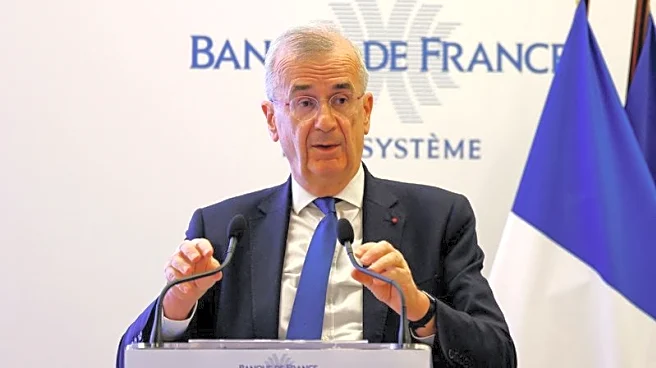Rapid Read • 8 min read
President Trump has imposed significant tariffs on African countries, with some nations facing export charges as high as 30%. These tariffs, announced as part of a reciprocal trade strategy, are based on trade deficits with the United States rather than the tariffs these countries charge. South Africa, among others, has challenged the accuracy of the data used to justify these tariffs. In response, China has offered to alleviate the impact by halting charges on imports from nearly all African partners, positioning itself as a more favorable trade ally. The tariffs have already affected various African economies, including Lesotho, which has declared a national state of disaster due to the economic impact.
AD
The imposition of tariffs by the Trump administration is reshaping global trade dynamics, particularly between Africa and major economic powers. As African countries face increased export costs to the U.S., China is stepping in to offer economic relief, potentially strengthening its influence on the continent. This shift could lead to a realignment of trade partnerships, with African nations becoming more reliant on China. The tariffs also highlight the broader implications of U.S. trade policies on international relations and economic stability, as countries reassess their alliances and trade strategies.
African countries may continue to seek alternative trade partners, with China likely to expand its economic presence on the continent. The U.S. may face diplomatic challenges as its tariffs strain relations with African nations. Additionally, industries in affected countries, such as Lesotho's textile sector, will need to adapt to the new economic landscape, potentially leading to job losses and further economic hardship. The situation may prompt discussions on revising trade agreements to mitigate the impact of tariffs.
The tariffs imposed by President Trump could have long-term implications for U.S. global leadership and influence. As African countries increasingly turn to China, the U.S. risks losing its strategic foothold in the region. This development underscores the importance of diplomatic engagement and trade negotiations in maintaining international relationships and economic partnerships. The shift also raises questions about the ethical considerations of using tariffs as a tool for economic leverage.
AD
More Stories You Might Enjoy














